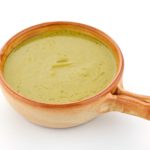Guest post by Kelly Hogan, MS, RD, CDN, a registered dietitian who has worked within the Mount Sinai Hospital for the past three years, now focusing on breast cancer nutrition for the Dubin Breast Center. Kelly provides individual counseling in the areas of wellness, weight management and symptom/side effect management, in addition to creating patient education and wellness programs.
 Food and nutrition-related trends come and go, and while I’m happy to see some have quieted down a bit (bye, fat free everything) I’m even more elated that others seem to be sticking around for a while. Here are a few of my favorites of late and ones I think will be even bigger in 2016.
Food and nutrition-related trends come and go, and while I’m happy to see some have quieted down a bit (bye, fat free everything) I’m even more elated that others seem to be sticking around for a while. Here are a few of my favorites of late and ones I think will be even bigger in 2016.
Seeds (chia, hemp, pumpkin, sunflower, flax)
Seeds will continue having their moment in 2016, and rightfully so. A sprinkle of any (or all) of the above on things like salads, oatmeal, yogurt, soups can not only boost nutrition, but also texture by adding a nice crunch. Chia seeds have been popular for a while now and are a great source of filling fiber, protein and omega-3 fatty acids. Similarly, hemp seeds are also an excellent source of omega-3s, which are important for brain and heart health, in addition to having anti-inflammatory properties. Hemp seeds are also one of the only plant-based proteins with all essential amino acids, making them a “complete” protein. This makes them an especially great addition to vegan or vegetarian dishes – 1.5 tablespoons of hemp seeds have about 5 grams of quality protein. Their slightly nutty flavor makes a nice addition to things like homemade granola bars, salads and smoothies.
Healthy fats
Thanks in part to the popularity of avocado toast (you know you instagrammed it at least once in 2015), the benefits of healthy fats – those from nuts, seeds, avocados, olive oil and fatty fishes – are being touted more and more, which makes my dietitian heart swell. Healthy fats promote satiety because they take longer for our bodies to break down and digest, which helps us feel fuller, longer (key for weight loss!). Foods rich in polyunsaturated and monounsaturated fats can also help maintain steady blood sugar levels, which are important for the management and prevention of diabetes as well as breast cancer. Healthy fats are also important for cognitive function – the brain composed largely of fat, and nerve cells depend on essential fatty acids for signaling. A diet rich in healthy fats may also prevent dementia and cognitive decline as we age. To increase healthy fats in your diet, try:
- Using mashed avocado or hummus for mayo as a sandwich spread
- Instead of butter on toast or cream cheese on bagels, use 1 tbsp. nut butter
- Sprinkle 1 tbsp. hemp, chia or flax seeds on yogurt, oatmeal, salads, etc.
- Dip whole grain breads and sauté veggies in extra virgin olive oil
- Choose wild salmon instead of steak the next time you dine out
- Swap French fries for steamed edamame
Pulses (beans, peas, lentils, chickpeas)
The 2015 UN General Assembly declared 2016 the International Year of the Pulses to help promote sustainable food production, nutrition and food security. Pulses are crops harvested solely for dry grain, and include dried beans, lentils, peas, chickpeas, etc. These are also one of the least expensive but most nutritious items you can buy at any given grocery store. In addition to protein, pulses are great sources of fiber, antioxidants and important vitamins and minerals like iron, thiamin and folic acid. Try my favorite (and super simple) split pea soup recipe below.
Simple Split Pea Soup (vegetarian)
serves 4
Ingredients
- 1 yellow onion, chopped
- 2 celery stalks, chopped
- 2 large carrots, chopped
- 2 Yukon Gold potatoes, cubed
- 3-4 cloves garlic, minced
- 1 tsp. dried thyme
- 1 tsp. dried basil
- 1 tsp. dried parsley
- 6 cups vegetable stock (this makes a thick soup – add an additional cup for a thinner version)
- 2 cups green split peas (rinsed and picked over)
- Salt and pepper to taste
Instructions
Add all ingredients into large soup pot and bring to a simmer. Cook loosely covered for 45-60 minutes, stirring occasionally, until peas are tender and broken down. Serve hot with salt and pepper to taste.
